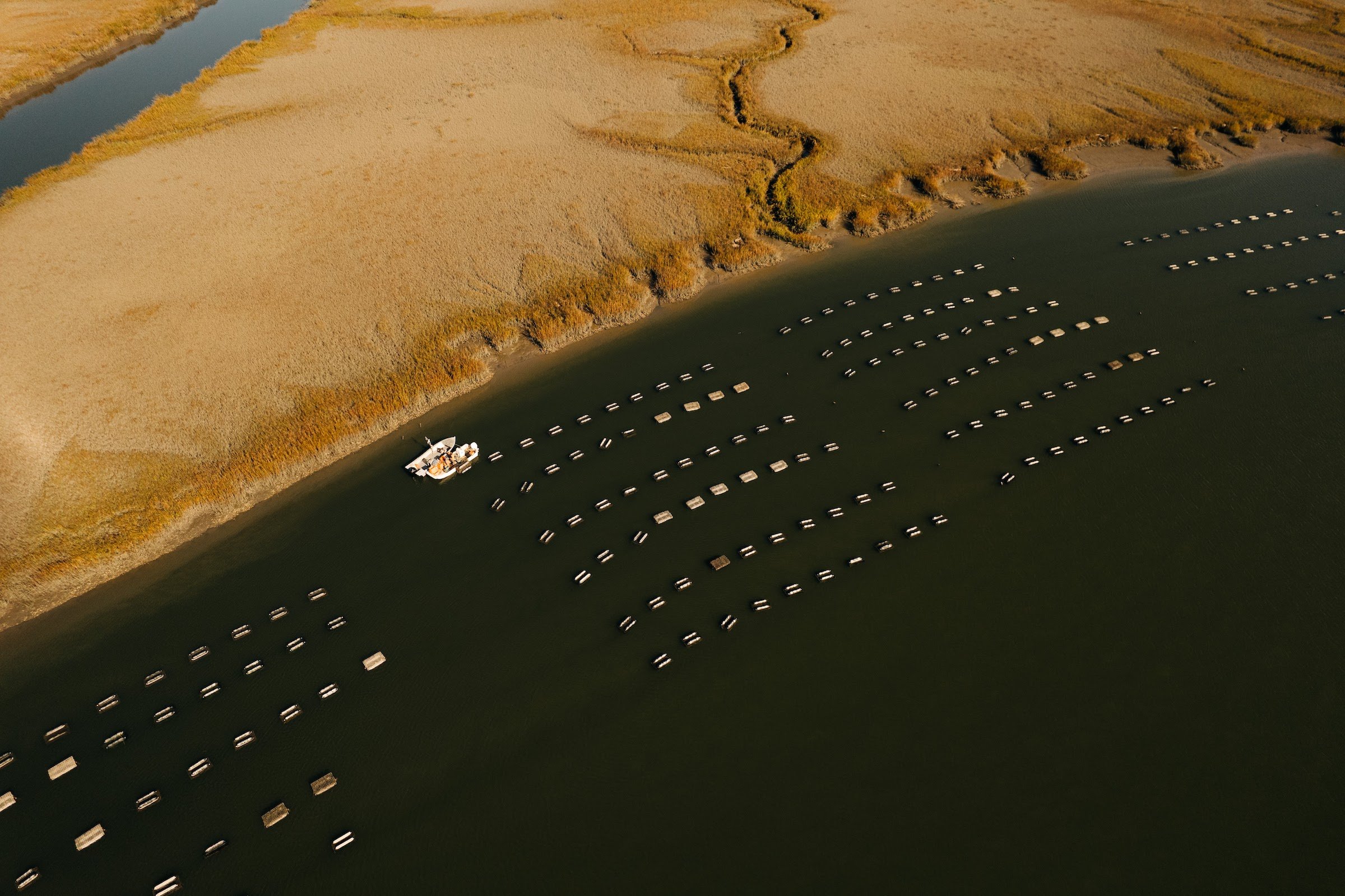Farm Fresh ~ Lowcountry Oyster Co.
FARM FRESH: GETTING TO THE MEAT OF SOUTHERN OYSTER FARMS
Oyster farming for fun? Plenty of those in the oyster aquaculture industry make resounding and repeated claims that their love of what they do often removes the feeling that it’s work. But it is. Trey McMillan, founder and president of Lowcountry Oyster Co. in Charleston, South Carolina, who initially saw oyster farming as a hobby, can attest to that fact. The commercial fisherman who’d grown up in boats and on the water got a glimpse of oyster aquaculture happening on Chesapeake Bay and thought it would be a pleasant pastime. “It looked cool — hand-raising this wild thing — and I came back to South Carolina and decided to try it but didn’t think of it as a job at first,” he says. As the reality of the effort required set in, his mind quickly changed. “It was a lot of work, and I saw huge demand for more oysters, so then I knew it was a full-time job,” he says.
Despite the shift from enjoyable side-gig to all-encompassing career, it was full-time job he knew he wanted. McMillan hung up his pro fishing gear, leveraged his house for a loan and dove in headfirst. In 2017, his fledgling farm brought in its first harvest. Five years later, Lowcountry Oysters has grown to include a nursery, in addition to wild stock leases, all managed by a team of 12 employees and a few part-time folks plus delivery drivers. The farm now plants around five million oysters annually, branded Lowcountry Cups, which, when all grown up, ship direct to customers nationwide, go to wholesalers for out-of-area sales and to multiple Charleston restaurants like Chubby Fish, The Darling and Bowens Island Restaurant.
The continual expansion of the operation speaks to the devoted fans Lowcountry’s oysters have earned, but McMillan says that can mostly be credited to the water the farm’s leases rest in, a 350,000-acre estuary called the ACE Basin about an hour south of Charleston. “It’s totally protected; there’s no nearby development, so no runoff, no industry around,” he says. “It’s some of the most pristine water you can find on the East Coast.” It also boasts high salinity. “It gives us great oysters with good, hard shells,” McMillan says. “You can taste how clean the water is.”
He calls this body of water “amazing” and loves the fact that oyster farming allows him to constantly interact with it and to play a part in keeping it pure. After commercial fishing took him all over the world for more than a decade, he also relishes the ability to work so close to home. But the real reward is the community his second career has given him. “I love the people who do this; it’s such a good group of generous people who are always looking to help each other,” he says. “We all share the same passion, and I love being around that. It’s like always being around an old friend.”
He notes one element that could be more friendly, at least in South Carolina. “There are some regulatory issues to contend with; it’s hard because so many things are not clearly defined,” he says. “A lot of it comes from a lack of understanding. And things have come a long way, but there is still a ways to go.”
McMillan is doing his part to improve the atmosphere for aquaculture in his state, serving as Vice President of the South Carolina Shellfish Growers Association and South Carolina’s State Representative for the East Coast Shellfish Growers Association. If anyone at the South Carolina agencies involved in oyster aquaculture is interested, McMillan would point them a little north for a look at a more positive environment for oyster farmers. “Virginia is an absolute powerhouse for aquaculture, and welcomes it in its waters,” he says. “I think all other states should consider using it as a model in terms of laws and regulations.”
Despite some hurdles, word is spreading about the multiple benefits of being in the oyster aquaculture biz, and McMillan stresses that there’s room for more farms without oversaturating the market; the demand is growing alongside the industry. “That’s why we [farms] work well together; we are technically competition, but most of us don’t really see it that way,” he says. He also reiterates the intense labor that oyster farming requires, yet deems it a labor of love. “It really is some hard work, but it's special work, and every day is still really fun too.”



